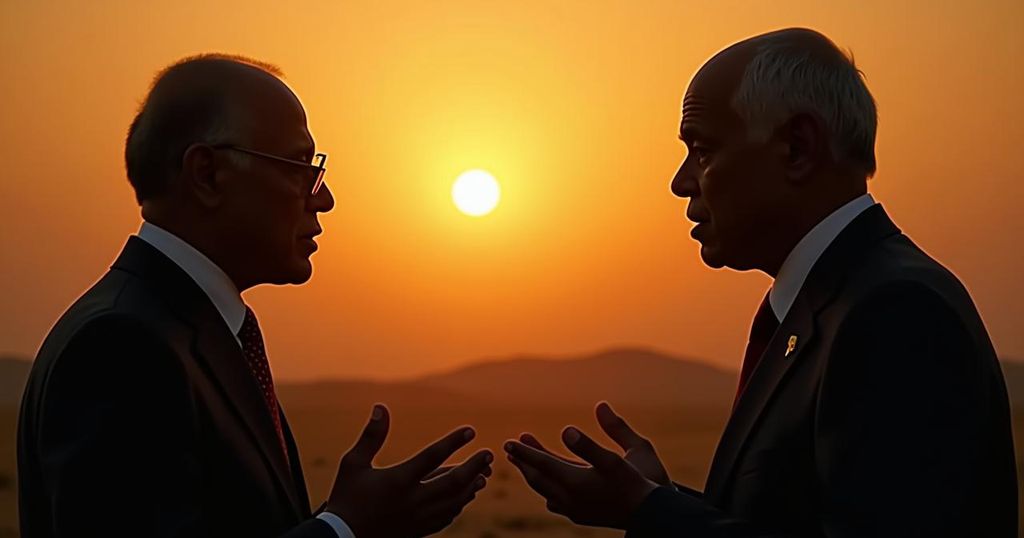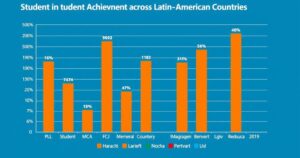Egypt’s Diplomatic Maneuvers in the Horn of Africa as Tensions with Ethiopia Escalate

Egypt’s President El Sisi has engaged in discussions in Eritrea amid escalating tensions with Ethiopia, while Somalia’s President Mohamud seeks closer ties with Egypt in response to deteriorating relationships with Ethiopia. This trip reflects strategic efforts by these nations to navigate ongoing conflicts in the Horn of Africa.
On Thursday, Egypt’s President Abdel Fattah El Sisi arrived in Eritrea’s capital, Asmara, for discussions with President Isaias Afwerki, focusing on strengthening bilateral relations and addressing current issues in the Horn of Africa. Somalia’s President Hassan Sheikh Mohamud had visited Asmara on Wednesday with a delegation that included Foreign Minister Ahmed Moalim Fiqi. This visit occurs amid significant unrest in the Horn of Africa, marked by ongoing conflicts that have notably shifted regional dynamics. The tensions between Egypt and Ethiopia have escalated due to Ethiopia’s construction of a megadam on the Blue Nile, exacerbated by a defense agreement signed on August 14 between Egypt and Somalia. As part of this agreement, Egypt has supplied arms to Somalia, which has prompted Egypt to initiate talks with Eritrea regarding enhanced military and intelligence cooperation. According to Rakha Ahmed Hassan, a former assistant foreign minister of Egypt, these moves are a strategic attempt by Egypt to strengthen its influence in the Horn of Africa amidst its growing rivalry with Ethiopia, which continues to be complicated by Eritrea’s troubled relationship with its southern neighbor. Historically, Eritrea and Ethiopia have shared a fraught relationship, described as more of a rivalry according to the United States Institute of Peace in 2023. A peace agreement in 2018 temporarily eased tensions; however, Eritrea expressed dissatisfaction following Ethiopia’s agreement with the Tigray People’s Liberation Front in 2022, which it perceives as a significant threat to its national security. Somalia’s ties with Ethiopia further soured following a memorandum of understanding between Ethiopia and Somaliland, a region seeking independence from Somalia, in January. The agreement, favoring Somaliland’s autonomy, prompted discontent within Somalia’s central government and led to a warning from Somalia’s National Security Adviser about potential expulsion of Ethiopian troops from Somali territory. Egypt’s recent commitment to assist in the African Union peacekeeping mission in Somalia, which is crucial in the fight against Al Shabab, reflects the strengthening relationship between Egypt and Somalia, as noted in a report by the Institute for the Study of War. In summary, Egypt and Eritrea have maintained diplomatic ties since Eritrea’s independence in 1993. Egypt’s role in diffusing tensions during the 1998 Ethiopia-Eritrea border conflict established a precedent for cooperation that has continued into their current endeavors surrounding regional security and stability.
The geopolitical landscape of the Horn of Africa has experienced dramatic shifts due to escalating tensions among nations, particularly between Ethiopia, Egypt, and Somalia. Egypt’s concerns largely stem from Ethiopia’s construction of the Grand Ethiopian Renaissance Dam on the Blue Nile River, which has implications for Egypt’s water security. Further complicating relations, Ethiopia’s ambitions and agreements with Somaliland have antagonized Somalia. Amidst these tensions, Egypt has sought to secure alliances, particularly with Somalia and Eritrea, both of which share concerns about Ethiopia’s expanding influence in the region. The careful navigation of these relationships reflects the broader struggle for control and cooperation in a region rife with instability and historical enmities.
The recent visits of President El Sisi and President Mohamud to Eritrea signify a strategic realignment of alliances in response to the evolving conflicts in the Horn of Africa. Egypt’s efforts to bolster its relationships with Somalia and Eritrea are rooted in a desire to counterbalance Ethiopian influence, particularly in light of the ongoing tensions surrounding the Nile waters and regional security threats. These developments underscore the intricate interplay of diplomacy and military collaboration as nations seek to secure their interests in a tumultuous region.
Original Source: www.thenationalnews.com





